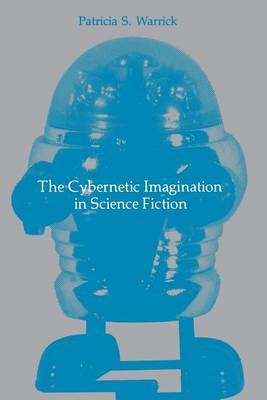Overview
"In this book, Patricia Warrick examines over 200 short stories and novels written between 1930 and 1977 which portray computers as robots, as ""thinking machines,"" as heroes and villains, gods and demons. The works are discussed according to a unique paradigm that divides them and the fictional worlds they create into closed, open, or isolated systems. Warrick analyzes recurring patterns and images, noting how these change (or fail to change) over time and how they relate to real technological developments. While focusing on a particular genre within science fiction, the book seeks to answer broader literary questions--Should the abundant body of work spawned by the science fiction imagination be taken seriously? Has it climbed up from its humble American beginnings in the pulp magazines? Does it do more than entertain? Has it accomplished the task of mythmaking which literature has traditionally done? And will it ultimately replace the realistic novel as the chief literary form by the end of this century? An aesthetic of complementary perception is defined, and Warrick concludes with a look into the electronic future, a condemnation of the pessimism and poor science she has found in much of post-World War II writing, and a proposal for revitalizing the cybernetic imagination. Among the writers whose work is examined are Brian W. Aldiss, Isaac Asimov, John Brunner, John W. Campbell, Arthur C. Clarke, Michael Crichton, Samuel R. Delany, Lester del Rey, Philip K. Dick, Harlan Ellison, Harry Harrison, Robert Heinlein, James Hogan, Fritz Leiber, Franke Herbert, Fred Hoyle, Stanislaw Lem, Anne McCaffrey, Michael Moorcock, Frederick Pohl, Robert Silverberg, Clifford Simak, Kurt Vonnegut, Jr., and Jack Williamson. The book includes extensive fiction and nonfiction bibliographies and an index."
Full Product Details
Author: Patricia S. Warrick
Publisher: MIT Press Ltd
Imprint: MIT Press
Dimensions:
Width: 15.00cm
, Height: 1.80cm
, Length: 22.60cm
Weight: 0.386kg
ISBN: 9780262730617
ISBN 10: 0262730618
Pages: 304
Publication Date: 04 May 1982
Recommended Age: From 18
Audience:
College/higher education
,
Professional and scholarly
,
Undergraduate
,
Postgraduate, Research & Scholarly
Format: Paperback
Publisher's Status: Unknown
Availability: Out of print, replaced by POD

We will order this item for you from a manufatured on demand supplier.
Reviews
Literary analysis, examination of ideas, the evolution of science and technology, and the place of science fiction on the spectrum of literature are thoroughly and readably integrated. In the course of all this, she provides a solid definition of the whole genre. Alternative Futures The book is provocative, stimulating, worth reading. Modern Fiction Studies Warrick's ostensible criteria for literary merit do not include such customary ones as character development, narrative, technique, style, and structure; but like the rest of us, she seems rather to enjoy a well-told story. Antioch Review
Literary analysis, examination of ideas, the evolution of science and technology, and the place of science fiction on the spectrum of literature are thoroughly and readably integrated. In the course of all this, she provides a solid definition of the whole genre. -- Alternative Futures
Cybernetic Imagination in Science Fiction shows an amazing combination of understanding of cybernetics and of science fiction. For someone who is interested in science fiction the book should be fascinating. It sets a new high standard for clear, literate, and thoughtful consideration of the field. Isaac Asimov Literary analysis, examination of ideas, the evolution of science and technology, and the place of science fiction on the spectrum of literature are thoroughly and readably integrated. In the course of all this, she provides a solid definition of the whole genre. Alternative Futures Warrick has done a very creditable job on a formidable task: to present a history of science fiction's treatment of artificial intelligence, to analyze that portion of science fiction in terms of recurring images, patterns, and meaning as well as in terms of cross-fertilization with actual science and technology, and 'to make a critical judgment of the literary merit of SF by a rigorous evaluative study of one if its important subgenres, cybernetic SF.' Warrick's ostensible criteria for literary merit do not include such customary ones as character development, narrative, technique, style, and structure; but like the rest of us, she seems rather to enjoy a well-told story. - Antioch Review The book is provocative, stimulating, worth reading. Modern Fiction Studies The book is provocative, stimulating, worth reading. Modern Fiction Studies Warrick's ostensible criteria for literary merit do not include such customary ones as character development, narrative, technique, style, and structure; but like the rest of us, she seems rather to enjoy a well-told story. Antioch Review




